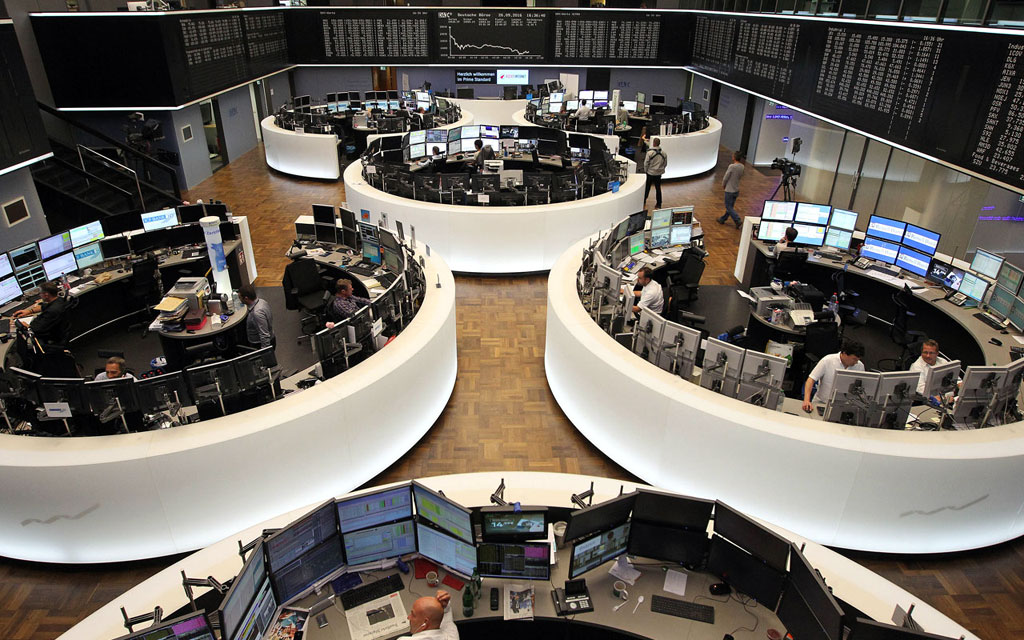 LONDON: World stocks were set for their biggest weekly loss since mid-March on Friday, while the dollar hovered just below recent four-month highs as investors awaited crucial US jobs data that could cement expectations of further US interest rate rises this year.
LONDON: World stocks were set for their biggest weekly loss since mid-March on Friday, while the dollar hovered just below recent four-month highs as investors awaited crucial US jobs data that could cement expectations of further US interest rate rises this year.
MSCI's All-Country World Index, a gauge of stocks across 47 countries, was up less than 0.1 percent on the day. It was set for a 1.2 percent loss this week, its biggest since the week ended March 23.
Investors were cautious after a largely weak performance on Wall Street overnight, as disappointments on the earnings front hit stocks in companies such as Spotify and AIG . Bond yields meanwhile slid following a surprising slowdown in euro zone inflation.
The other issue preying on markets is the trade tension between the United States and China. Top officials from Beijing and Washington have reached a consensus on some aspects of the countries' trade row, but disagreements over other issues remain "relatively big", according to China's Xinhua news agency.
The talks over the past two days have involved a high-level US trade delegation led by Treasury Secretary Steven Mnuchin and top Chinese officials, following months of threats and counter threats from both sides in a series of disputes over trade practices.
"Concerns about the ongoing meeting between US and Chinese officials over trade policy have been cited as one factor contributing to some of yesterday's investor nervousness, however these worries aren't likely to dissipate any time soon," said Michael Hewson, chief markets analyst at CMC Markets in London.
Meanwhile, the dollar rose against a basket of currencies , hugging recent highs posted on the back of a sharp rally that has fully reversed its 2018 losses.
It could get more fuel should April US payrolls data, due at 1230 GMT, underscore labour market strength. Non-farm payrolls were likely to have increased by about 192,000 last month, according to a Reuters survey of economists, after rising only 103,000 in March.
But it will be the wages figure that analysts will focus on.
"A further pick-up in the pace of wage gains could be the 'smoking gun' for the Fed (Federal Reserve) to express any shift away from 'roughly balanced' risks to inflation," said Mizuho analyst Vishnu Varathan.
While the US Federal Reserve is seen raising interest rates at least two more times this year, expectations of policy tightening from the European Central Bank and the Bank of England are receding.
That has driven the difference between German and US government bond yields to near the highest in nearly three decades, with the short-dated and long-dated "transatlantic spread" standing at 305 and 240 basis points respectively.
Currency markets are betting the relative interest rate advantage will continue to push the dollar higher.
However, analysts at ING reckon the dollar's recent reversal is likely to be short-lived.
"When dissecting the anatomy of this dollar correction, we feel it exhibits all the hallmarks of a short squeeze. Positioning had clearly been stretched," they wrote in a research note.
While short dollar bets have receded somewhat, they are still holding near a record $28 billion registered in late April.
The euro meanwhile stood just above four-month lows against the dollar, a level hit after inflation in the euro zone fell short of expectations, according to data on Thursday.
The euro weakness has lifted European stocks however, with a euro zone index set for its sixth straight week of gains .
A pan-European equity benchmark meanwhile was up 0.3 percent thanks to a flurry of robust earnings reports from companies such as chemicals firm Lanxess, British Airways owner IAG and sports car maker Ferrari.
However, banking stocks lagged following poor updates, including from HSBC and Societe Generale.
Oil prices steadied as global supplies remained tight and the market awaited news from Washington on possible new US sanctions against Iran.


























Comments
Comments are closed.